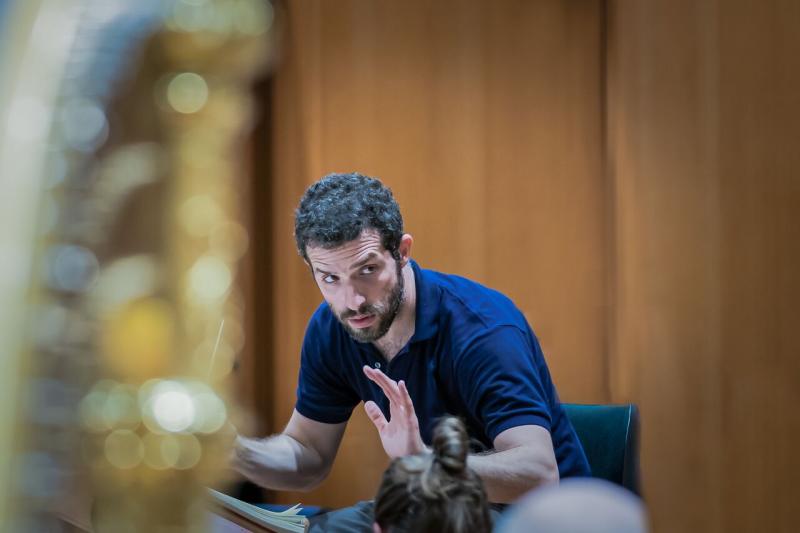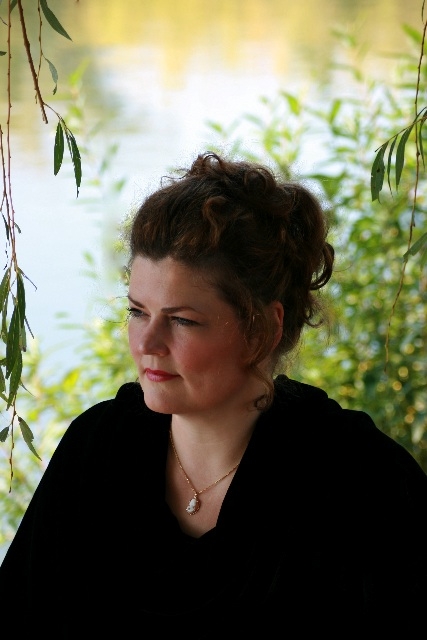BBC Philharmonic, Wellber, Bridgewater Hall, Manchester review - new conductor’s debut | reviews, news & interviews
BBC Philharmonic, Wellber, Bridgewater Hall, Manchester review - new conductor’s debut
BBC Philharmonic, Wellber, Bridgewater Hall, Manchester review - new conductor’s debut
Harbinger of things to come – the spirit of the stage

Two days after announcing his appointment as their next chief conductor (he takes the reins officially next summer, in time for the Proms), by remarkable good fortune the Manchester-based BBC Philharmonic was able to present Omer Meir Wellber as the conductor of their second Bridgewater Hall series concert.
So his Mozart opener – the "Linz" Symphony, No. 36 – was confessedly there as a kind of overture to the hour of Wagner (Act 1 of Die Walküre) which followed. It was a pretty good curtain-raiser on his BBC Phil era, and the "flexibility" he talked about in his pre-concert interview with BBC Philharmonic general manager Simon Webb was soon to be seen and heard. He strode on to the platform in lounge suit and open collar, gave a brisk bow, and we were off. This was Mozart done by an expert. He’s economic of gesture, flexibility itself in body language, and had the measure of the hall acoustic immediately as the 31-strings orchestra (guest led by George Tudorache) played with telling precision and transparent tone.
The sound of his BBC Philharmonic was gentle, restrained even, yet the operatic touch was there from the start: the introduction was played with bated breath and effective contrasts, and the allegro built energetically after an innocuously undemonstrative entrance. But there were soloistic moments for the woodwind and mystery every now and then, while melody led the texture all the way. The presto finale was like it: another whispered beginning, smoothness and a sense of line amid the scuttering string writing, and fun creeping in with a touch of exaggeration right at the end. But the inside movements raised more questions than answers. The triple-time andante was quite stately, sometimes almost hesitant, and for all its precision and delicacy was on the edge of mannerism; the Minuet took another leisurely pace and came over as rather too studied for its own good.
 On to Wagner, though, and now we had the full forces of the Phil, the strings almost doubled in number. Wellber had the benefit of three outstanding soloists for the story of Sieglinde and Siegmund’s dawning affection (never mind that they’re twins – it’s a gigantic love duet). Christiane Libor (pictured right) has a glorious, young but full soprano sound and an excellent Wagnerian track record; Robert Dean Smith is a seasoned Heldentenor, unflinchingly strong – and Brindley Sherratt, as Hunding, brought the note of pent-up violence and menace.
On to Wagner, though, and now we had the full forces of the Phil, the strings almost doubled in number. Wellber had the benefit of three outstanding soloists for the story of Sieglinde and Siegmund’s dawning affection (never mind that they’re twins – it’s a gigantic love duet). Christiane Libor (pictured right) has a glorious, young but full soprano sound and an excellent Wagnerian track record; Robert Dean Smith is a seasoned Heldentenor, unflinchingly strong – and Brindley Sherratt, as Hunding, brought the note of pent-up violence and menace.
I expect it was the orchestra’s combined resources and splendour of tone that also impressed many of the enthusiastic crowd. The same qualities of attention to articulation and vivid contrast that we’d heard in the Mozart were now painted on a much bigger, broader canvas. Wellber said before he began that for him as an Israeli it’s Wagner’s greatness as a composer that he honours, not his wacky philosophies, and he knows where the jewels lie in the vast cave of this score. We heard remarkable warmth in the string playing in the first encounter of the two young protagonists, incisive brass playing as the warlike themes for Hunding emerge, and wonderfully mellow trombone tone in the aural echoes of Das Rheingold’s Valhalla.
Wellber paced the piece superbly, bringing vivid qualities to the accompaniment of Siegmund’s story of his battle and mounting tension and a great crescendo as the two men faced off against each other. Then there was a slow build-up of excitement and exultation as the twins discovered each other in the moonlight, their passionate love music building to a resplendent brass-led chorus as Siegmund drew the magic sword – and a big finish. It was quite a series debut.
rating
Share this article
The future of Arts Journalism
You can stop theartsdesk.com closing!
We urgently need financing to survive. Our fundraising drive has thus far raised £49,000 but we need to reach £100,000 or we will be forced to close. Please contribute here: https://gofund.me/c3f6033d
And if you can forward this information to anyone who might assist, we’d be grateful.

Subscribe to theartsdesk.com
Thank you for continuing to read our work on theartsdesk.com. For unlimited access to every article in its entirety, including our archive of more than 15,000 pieces, we're asking for £5 per month or £40 per year. We feel it's a very good deal, and hope you do too.
To take a subscription now simply click here.
And if you're looking for that extra gift for a friend or family member, why not treat them to a theartsdesk.com gift subscription?
